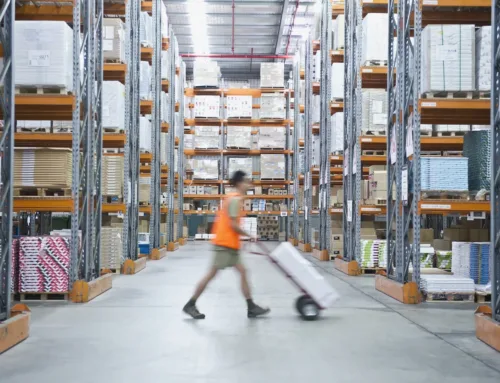Wonolo
“Artificial Intelligence” is a hot topic currently. Like any major technological development, it elicits a mixture of positive and negative reactions.
Aside from the imaginings of dystopian sci-fi, it’s a fact that artificial intelligence is already transforming and disrupting many industries.
The staffing business has always been a people-centric business. It could also be described as a “traditional” business that has generally been late to adopt new technologies.
While it will always remain people-centric, artificial intelligence – in the form of “data science” and “machine learning” – is poised to have a hugely disruptive impact on the staffing industry too.
This post gives an introduction to the data science and machine learning work that we do at Wonolo, the insights we’ve been able to gain and the tangible improvements that we’ve been able to deliver to our customers.
Don’t worry! We’re going to keep this as high level and jargon-free as possible.
What is “Data Science” and “Machine Learning”?
This is a jargon-loaded space for sure. Let’s try to break it down with a Venn diagram:

In summary, Machine Learning is a form of Artificial Intelligence that allows us to derive useful insights when we have lots of data to learn from.
At Wonolo, we’re lucky that we now have some large and detailed datasets to learn from – hundreds of thousands of workers (or “Wonoloers” as we call them) and hundreds of thousands of jobs done, along with their outcomes.
Data-Driven Staffing through Ratings
On the Wonolo platform, every job done is rated – both by the Wonoloer and by the Requestor (Customer).
This two-way rating comprises both quantitative data (a star rating out of 5 stars) and qualitative data (written comments/feedback).
This rating system is a core part of the Wonolo platform. It’s our feedback loop. It allows us to give quick feedback to both our Wonoloers and Requestors. It also allows us to quickly weed out poor performers and reward good performers.
It also provides us with a hugely rich dataset on which to perform Machine Learning. By looking at all the attributes of a job, the Wonoloer, the Requestor and the job’s outcome as manifested in the ratings given, we have been able to learn what is critical in great job performance.
How Machine Learning Works
Ok, so how does Machine Learning actually work? I promised to keep it high level, so here’s a quick overview:

At Wonolo, we’re doing what’s called “supervised learning”:
Step 1 is to take a large number of examples and feed those into a Machine Learning algorithm. For example, we take the hundreds of thousands of jobs that have been performed on Wonolo, along with the rating that job was given by Wonoloer and Requestor. The Machine Learning algorithm crunches the numbers and “learns” how to predict the ratings. These learns are encapsulated in what is referred to as a “model”.
Step 2 is to use this model to predict the ratings that future jobs will be given. Once we can predict the ratings, we can then take action if it looks as if the ratings will not be good.
Machine Learning in Action
This is a summary of just a few of the Machine Learning initiatives that are already delivering results at Wonolo:
Reducing No Shows
No shows have an obvious negative impact on any customer. This is especially true as I write this in mid-December: many of our customers are up against it, trying to ship out orders to arrive in time for Christmas. Even one no show has a negative impact – it means not enough people to get the job done, resulting in orders not getting out in time.
No shows have always been very low on Wonolo, when compared to the staffing industry as a whole: our no show rate was always consistently less than 2%.
Machine Learning is allowing us to drive this down further: we took a dataset that summarizes approximately 50,000 jobs in terms of 37 different attributes of the Wonoloer who took the job, the details of the job, the Requestor, etc.
After teaching a Machine Learning algorithm using this dataset, we are now able to predict no shows with an accuracy of around 80%.
Now that we can predict no shows, we can take remedial action to make sure they don’t happen. This is a clear case of Machine Learning delivering a direct benefit to our customers.
Improving Wonoloer Onboarding
Wonolo’s onboarding process is very different to that of a traditional staffing agency: rather than a walk-in at an office and hours spent filling our paper forms, Wonolo onboarding happens entirely on the Wonoloer’s smartphone.
Also, instead of focusing solely on someone’s work experience, we assess character traits in the form of the “5 Ps” – professionalism, punctuality, preparedness, politeness and positivity.
This onboarding process yields another huge and rich dataset: we have hundreds of thousands of actual and potential Wonoloers, along with their assessment on the 5Ps and their actual performance on this job.
Using this dataset, we have used Machine Learning to be able to predict which people will successfully complete onboarding and become productive Wonoloers with an accuracy > 70%. This has also allowed us to be more selective in finding candidate Wonoloers who are likely to perform well on the job.
Maximizing Fill Rate
Wonolo is a two-sided marketplace. Our job is to match supply (Wonoloers) with demand (customers) as efficiently as possible.
Inside our Customer Portal, we have a nifty feature called Fill Advisor™.
As the name suggests, Fill Advisor™ tells our customer how likely their job is to be filled based on a number of factors including the prevailing pay rates in their area for the type of work, location, lead time, job start time and duration.
Fill Advisor™ works by learning from all the prior jobs on the Wonolo platform that were similar and their fill rate to predict the likely fill rate for any future job.
In Summary
We’re just getting started. We are excited by the results we’ve seen so far and are expanding our investment in Machine Learning. As every day passes, we have bigger and bigger datasets to learn from.
We feel that Wonolo is poised to truly disrupt the traditional staffing market through use of data science. Expect more on this topic as we continue to see data-driven staffing in action.






